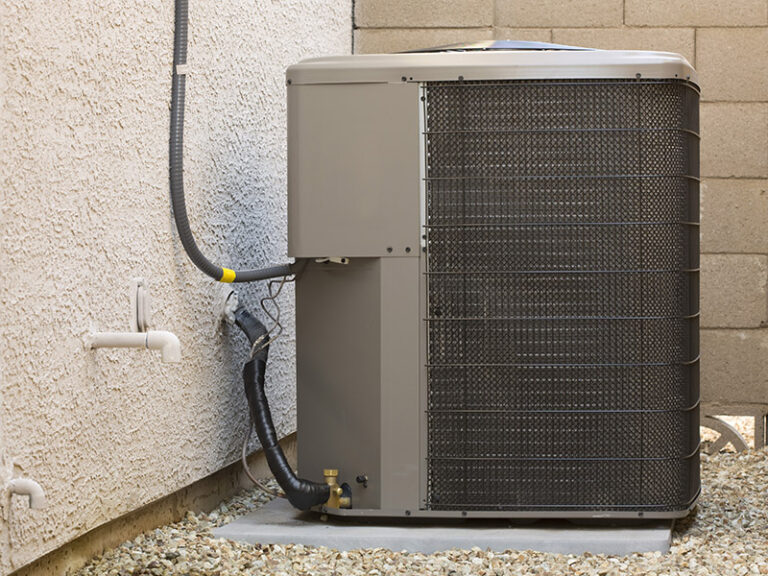Originally published in March 2017, updated May 2020.
Many Charleston, SC, homeowners don’t know what a condensate line is or the role it plays in heating and cooling a house. This pipe provides the moisture that collects in your furnace or air conditioner with safe passage out of the unit, out of your house and into the ground outside. The line emerges from your home near the outdoor unit of your air conditioner. If the air conditioner is in operation but water is not dripping from the pipe, the line may be clogged. The clog must be cleared so the water will have somewhere to go.
Clogs can Damage Your HVAC
If you see water pooling near your furnace or near the indoor unit of your air conditioner, it indicates a blockage. The blockage may be due to biological build-up and dirt. A condensate pan holds moisture as it flows out of your HVAC and passes it into the drain pipe. If there’s a problem with the pan or if it’s full to capacity because of a clog, the water will overflow onto the floor next to your HVAC. If enough water is involved, your system will shut down and become inoperable.
If your air conditioning is blowing warm air or isn’t turning on, check the condensate line. If no water is dripping, your drain pan is probably full of water and the line will need to be cleared.
Clogs can Damage Your Property
The puddles formed by overflowing water near your air handler can cause substantial water damage in your living space. If left unchecked, this moisture can encourage the growth of biologic material and mildew.
Schedule HVAC Repair Immediately
If you think the line is clogged, a shop vac will often extract the clog out. If not, schedule HVAC repair. Do not continue to operate the system. Your technician has the tools to extract the clog so your system will operate again. You should check your condensate line several times a year to make sure it is clear. If you’re comfortable doing some DIY maintenance, a vinegar and water or diluted bleach solution can be poured into the line to keep biologic growth away.
The best way to keep moisture in the condensate line flowing freely is with annual HVAC maintenance. To learn more about the benefits of maintenance plans and seasonal tune-ups in the Charleston, SC area, visit M & B Heating and Air or give us a call.


